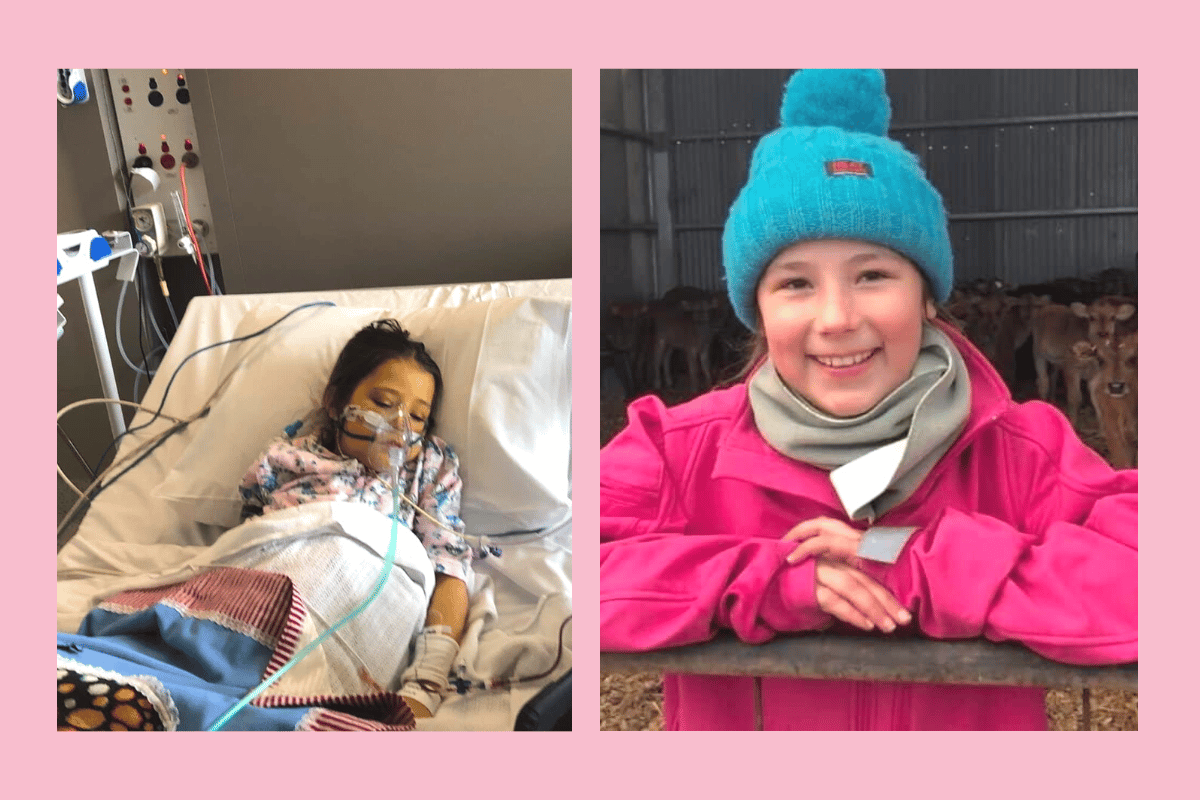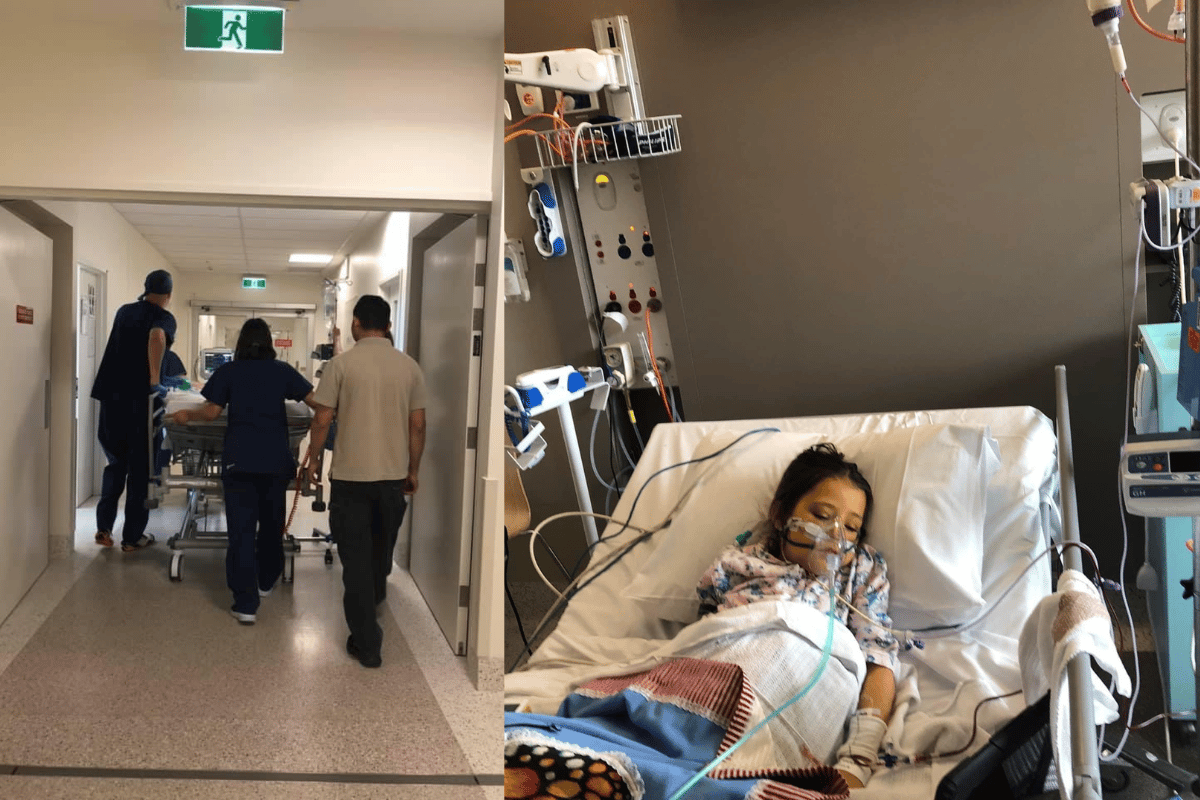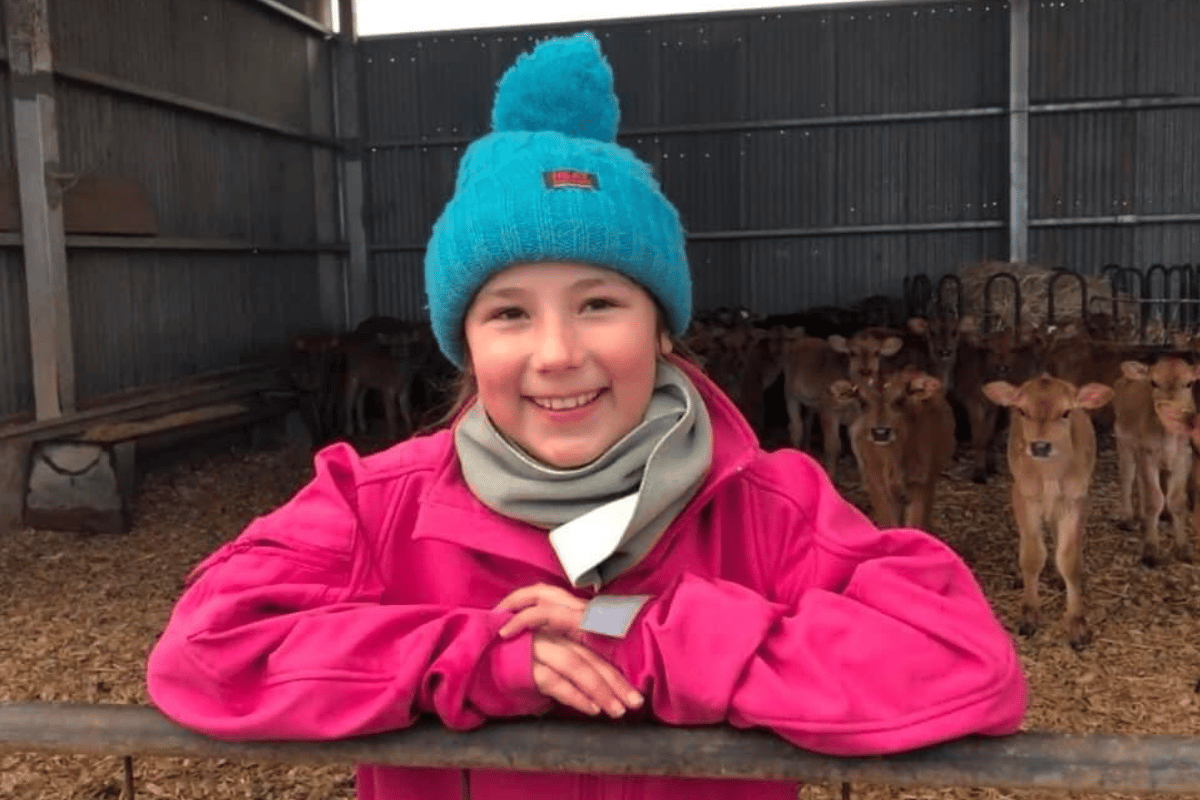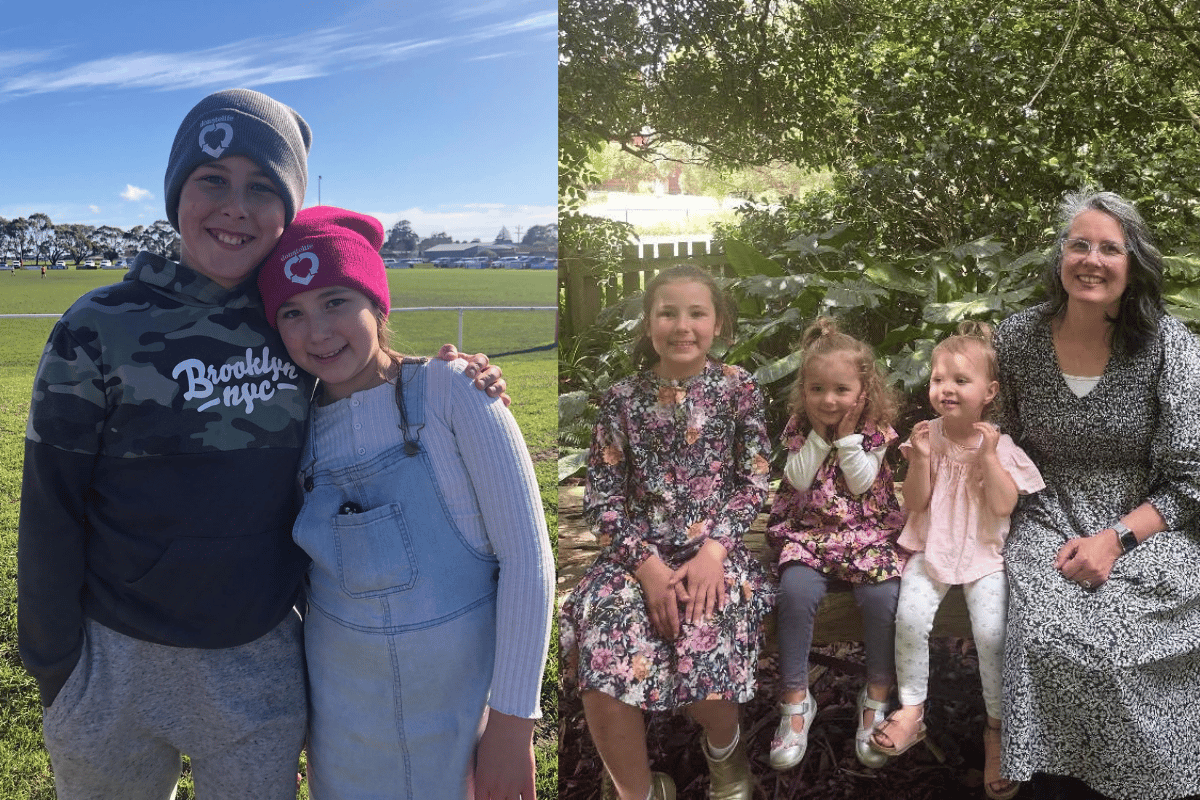
When Natasha Wagner was on a trip in India, she received a message that would stop her in her tracks.
It was from one of her seven kids saying Natasha's youngest child, six-year-old daughter Evie, was looking really unwell.
"I received the message saying 'Mum, Evie's yellow. Her eyes are yellow.' I went cold, and messaged back saying to take her to the doctor or hospital straightaway. I knew something was definitely wrong," Natasha told Mamamia.
At the hospital, doctors said Evie had only 48 hours left to live given the state she was in.
There had been small 'clues' suggesting Evie wasn't 100 per cent well in the lead up to the hospital trip. Of course, hindsight is a wonderful thing.
She had experienced a few nosebleeds that went for at least 10 minutes each time. Doctors hadn't been concerned about them when Natasha had inquired. But then Evie started to go off her food. She was more sleepy than normal. And perhaps most startingly, her stomach was completely swollen, mimicking that of a heavily pregnant woman.
So when Evie's skin and eyes began to turn yellow - a sign of jaundice - Natasha knew things were serious.
When Evie arrived at hospital, Natasha was busy making plans to get back to Australia. It was five days before she was able to get home.
 Evie in hospital and being wheeled to receive her transplant. Image: Supplied.
Evie in hospital and being wheeled to receive her transplant. Image: Supplied.



Top Comments